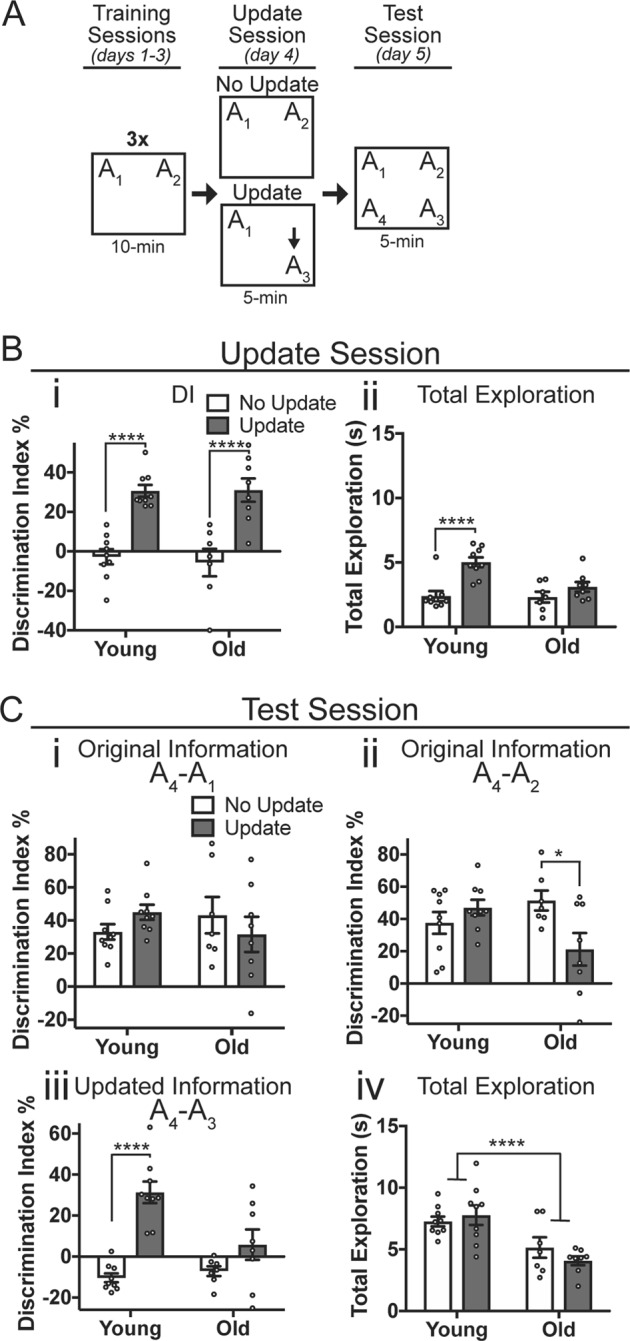Fig. 4.

Aging mice show impairments in memory updating. a Experimental design. Young (3-months-old) and old (18-months-old) mice were given three successive days of training before the day four update session. b Update session behavior. (i) Both young and old mice in the Update condition prefer the novel (updated) location A3 over familiar location A1. Mice in the No Update group show a low DI, indicating no preference for familiar locations A1 or A2. (ii) Young mice given the update show significantly more total exploration than young No Update mice. Old mice show similar exploration in the Update and No Update conditions. c Test session behavior. (i) All animals show intact memory for original training object A1. (ii) For original training object A2, young mice showed similar memory performance regardless of whether they were given the update. Old mice, in comparison, showed significantly lower DIs for object A2 in the Update condition compared to the No Update condition. (iii) Young, but not old mice show intact memory for the updated location A3. Young mice in the Update condition show a significantly higher DI (A3–A4) compared to No Update controls. For old mice, both the No Update and Update groups show DIs near zero, indicating no preference for the novel location A4 over the updated location A3, even after updating. (iv) Total exploration was significantly lower in old animals compared to young, but no group differences were observed between Update and No Update groups. Data are presented as mean ± SEM. *p < 0.05, ****p < 0.0001
